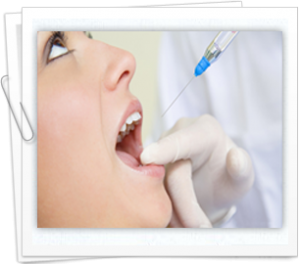Online CPR Certification Blog
The Truth behind Adrenaline as the Optimum yet Awful Type of Drug
Date: November 19th, 2014
 Aside from becoming the very first type of drug for patients with cardiac arrest condition, there are also studies that have shown how people have checked the affectivity of epinephrine. Usually, there are few questions about Adrenalin’s affectivity and safety along with its efficiency in terms of sudden cardiac arrest.
Aside from becoming the very first type of drug for patients with cardiac arrest condition, there are also studies that have shown how people have checked the affectivity of epinephrine. Usually, there are few questions about Adrenalin’s affectivity and safety along with its efficiency in terms of sudden cardiac arrest.
The present AHA references for cardiac arrest
At present, AHA ACLS guide for Ventricular fibrillation/ pulses VT has just said that there should be around 1mg IV epinephrine for every patient every 3 to 5 minutes. According to the rules, even if the doctor have used epinephrine for several years in sustaining the life of the patient, there are still some information that have shown how it helps in the improvement of the patients.
Epinephrine management seems to have improved the ROSC in patients, which is typically used to sustain the life or revive the patient due to its alpha adrenergic effects. Vasoconstriction can help in boosting the cerebral & coronary blood flow while CPR is conducted by elevating the mean arterial pressure and aortic diastolic pressure. In previous cases, increasing the dose of epinephrine didn’t even improve the survival rate to release after the revival method from the cardiac arrest.
The bad effects of Epinephrine
The animal models used in the study of the effectiveness of the drug are still young and they do not represent older humans with disease. On the other hand, there is on group that has shown that the coronary lesions are lessened and doesn’t co-relate along with the coronary perfusion pressure while CPR is ongoing. There is another study, which is about the predictions of neurologic results in patients who went through resuscitation from OHCA that involved a hundred and eighty four of those OHCA patients survived cardiac arrest in LA between years 2008 to 2012.
Around 43% of the patients with favorable results, mid-aged were around 65 years old, while 53% of those were men. They have discovered that those who have survived their illness in the hospital were related to the use of 1.5mg of epinephrine and lactate of around 5mmo/L. There was a study that is based on the registry of the population with the use of multiple sources to gather cases of people with sudden cardiac death or SCD around Paris and that results to around 6.6M who got 3mg. of epinephrine. There is another study that was made with six hundred fifty people who have had cardiac arrest regardless if they are inside or outside of the hospital premises to get around 5 doses of high dose 7mg of epinephrine with only 5 minutes intervals to conform to the normal protocols for the advanced cardiac life support.
Be careful with Epinephrine side effects
Epinephrine is known to raise the blood pressure & the heart rate of the patient that may lead to elevated level of myocardial oxygen demand and that may cause myocardial ischemia. It may also increase the survival rate of the patient, but with higher dose, but having a higher dose may lead to myocardial dysfunction that may also lead to arrhythmia.
